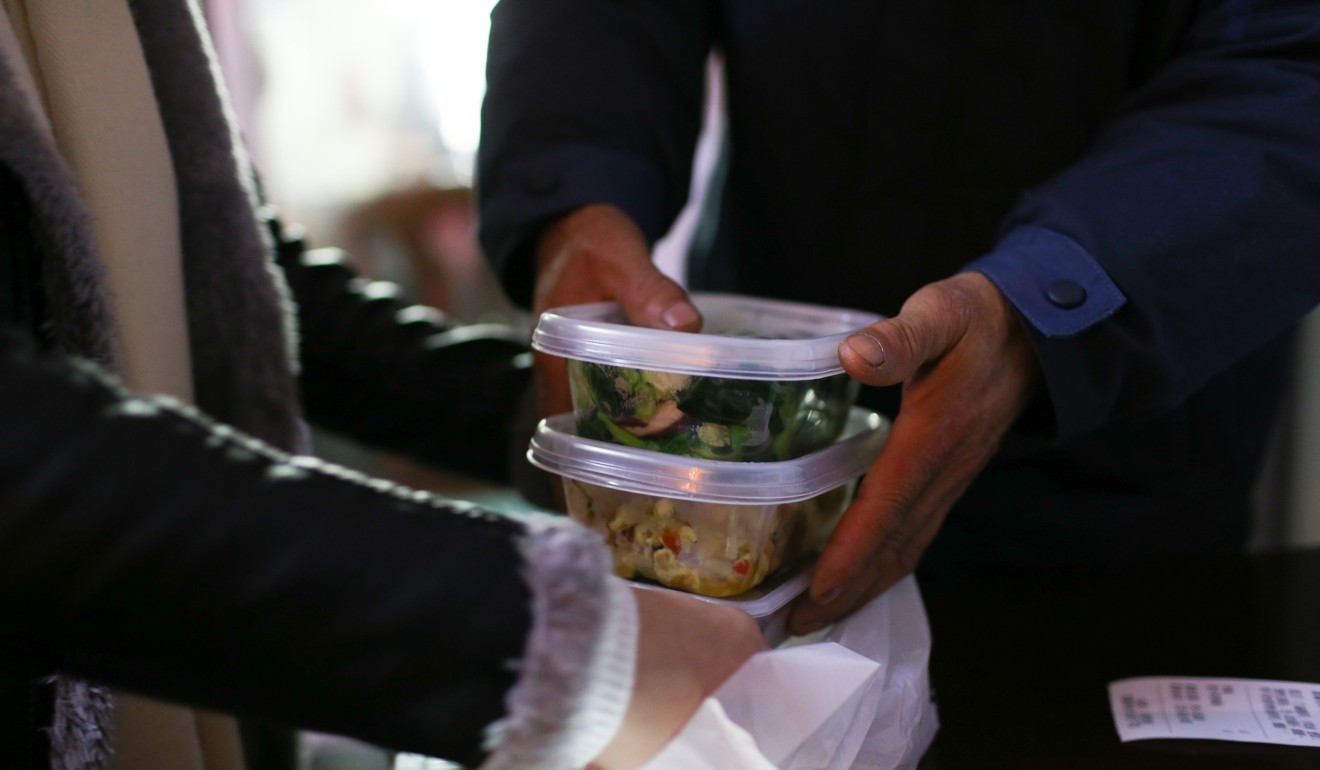
Meal delivery is shaping up to be the next battlefront for China’s tech giants
Alibaba’s potential takeover of Ele.me, the food delivery service market leader in China, would intensify its competition with rival Tencent in online-to-offline services and mobile payments
Thomas Chen, a resident of the southern coastal city of Shenzhen, said he cannot remember the last time he left his flat to buy a takeaway meal.
Like many other consumers in the densely packed Chinese metropolis, the 27-year old Chen, who works in legal services, has grown accustomed to all the modern conveniences accessible through a smartphone: meal recommendations from local services platform Meituan-Dianping, food delivery via the Meituan Waimai app and payments on WeChat Pay.
“It’s so convenient that I don’t need to take a step out of my door,” he said.
Consumers like Chen are a big reason Alibaba Group Holding is widely expected to pull the trigger in taking over food delivery service Ele.me, which would enable the e-commerce giant to run its own delivery network to support the company’s strategy of merging online commerce with physical retail, according to analysts.
Reports last month said Alibaba had offered to buy out the remaining stake it does not own in Shanghai-based Ele.me for US$9.5 billion, a deal that would intensify competition between Alibaba and Tencent Holdings in online-to-offline local services and mobile payments.
Both Alibaba and Ele.me declined to comment on the reported acquisition, while representatives for Tencent did not immediately comment.
Food delivery saw another entrant early this month. Didi Chuxing, the biggest ride-hailing operator in China and world’s most valuable start-up, was advertising for riders in several cities in the mainland.
“This is not a mere competition for the food delivery market for Meituan, Ele.me and Didi, it is also a race to gain new users and guide them into their ecosystem of other services,” said Neil Wang, the Greater China president at consultancy Frost & Sullivan.
With a range of consumer services that help make users’ lives convenient, Alibaba, Tencent and Didi would also collect plenty of customer data.
Their food-delivery platforms, for example, would provide insights into consumer spending power, eating preferences and payment profiles.
“Acquiring Ele.me would provide Alibaba with strong capacity since Ele.me owns the country’s largest instant delivery system, with more than three million delivery men and an advanced order-matching model,” said Frost & Sullivan’s Wang.

Jack Ma Yun, the founder and executive chairman of Alibaba, which owns the South China Morning Post, first made public the company’s New Retail initiative in 2016, when he described it as “the integration of online, offline, logistics and data across a single value chain”.
Unlike its Tencent-backed rival JD.com, Alibaba does not directly operate its own transport and logistics operations, which put it at a disadvantage in the growing local services market that included on-demand deliveries of food and groceries.
What Alibaba initially pursued involved a mix of online and bricks-and-mortar retail investments to support its core online shopping operations. Those included buying stakes in companies such as Suning Commerce, Hema Supermarket, Sanjiang Supermarket, Intime Retail, Lianhua Supermarket, Easy Home and Shiji Retail.
With the Ele.me deal, Alibaba is poised to raise the total amount of its New Retail investments to more than 100 billion yuan (US$15.8 billion), based on Jefferies’ estimate that Alibaba had made 85 billion yuan in related corporate acquisitions since 2015.

Alibaba had led a US$1 billion fundraising in Ele.me last year as well as took part in a US$1.25 billion investment round in 2016.
That total would surpass the estimated 22 billion yuan in total investments made by Tencent since last year in a similar mix of online and bricks-and-mortar establishments, including Yonghui Superstores, Heilan Home, Carrefour and Vipshop Holdings.
Karen Chan, an equity analyst at Jefferies, said Ele.me’s coverage of 1,500 districts and counties would also help expand the reach of Alibaba’s Tmall Supermarket, especially in providing last-mile, 30-minute delivery service.
Ele.me currently accounts for 50 per cent of the mainland’s food delivery market, followed by Meituan Waimai with a 43.5 per cent share, according to data from Analysys International.
Didi’s move into food delivery would follow the lead of Uber, whose China operations Didi acquired in 2016, in terms of setting up an extensive driver network ahead of launching on-demand food delivery service Uber Eats.
“With 332 million mobile users or 43 per cent of mobile internet penetration, food delivery is a highly frequent user case for mobile payment,” said Jefferies’ Chan.
She said this was important for Alibaba to expand customer acquisition among its different services as well as to grow Alipay’s user base and transactions.
Jefferies estimated that Alipay had 520 million users at the end of last year, when it recorded 57.5 billion yuan in mobile gross merchandise volume. Tencent has seen its payments business grow through its do-everything platform, WeChat, which recorded 1 billion monthly active users last month.
Alibaba last month agreed to acquire a 33 per cent stake in affiliate Ant Financial Services Group, which runs payments giant Alipay.
This is not a mere competition for the food delivery market for Meituan, Ele.me and Didi, it is also a race to gain new users and guide them into their ecosystem of other services
To be sure, the convenience that consumers enjoy from one-stop service comes at a cost. Their personal data and habits are handed over to the tech companies, while merchants may become increasingly dependent on the tech eco-systems even as they benefit from referral business.
The more consumer data that technology companies can get ahold of, the more targeted the insights it can provide to its merchants and advertisers, according to Shaun Rein, the managing director of China Market Research Group and author of The War for China’s Wallet: Profiting from the New World Order.
Targeted advertising based on user data then translates back to revenue for these companies.
“Companies like Alibaba and Tencent … have a [complete] ecosystem where you can’t go a day or an hour without letting either of them know what you’re doing,” said Rein. “Whether you are communicating with friends, ordering a taxi, renting a bike, or paying your bills.”
Additional reporting by Iris Deng


